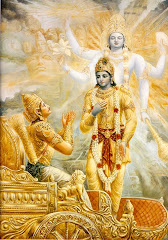This one
makes for a nifty read. Nifty - in all its myriad shades and meanings that is,
if you know what I mean.
Anuvab
Pal is an
acclaimed playwright and screenplay writer. His screenplays include the award
winning The Loins of Punjab - "a witty musical comedy with a sharp
political edge" as per the NY Times, and The President is Coming - a
low-budget English-language film that "takes a healthy snigger at the desi
self" according to Nikhat Kazmi (from the Times of India.)
However, what has been overlooked so far is Anuvab's
stellar selling skills and awesome pursuing power. Here's why: In the foreword
itself (titled: Why am I writing a memoir?) he mentions and I quote, "I
have always wanted to hire a Bengali secretary. I have always wanted to hire a
Bengali secretary with an MA. Ideally in English Literature. I won't go into
why. It has something to do with Aparna Sen getting wet."
Then towards the end of the book he writes, and I quote,
"The only Bengali I like is Aparna Sen because she got wet in a movie I saw a
little bit of, and yes, maybe I was a bit drunk that night because of Antara
leaving. The point is, I like wet Bengalis. But definitely not the dry ones."
And
here's the clincher: on the back cover of this book, like a masthead, stands
the words, "Pal is one of the funniest people I know!" - Konkona Sen Sharma.
Well, we
are all familiar with Konkona,
aren't we? She featured in the Aparna Sen-helmed Mr. and Mrs. Iyer,
Vishal Bharadwaj's Omkara (a desi take on Othello), the Madhur
Bhandarkar directed noir film named Traffic Signal and Page 3,
Anurag Basu's Life in a... Metro, Zoya Akhtar's Luck by Chance
and Ayan Mukerjee's romantic comedy Wake Up Sid - in which she starred
alongside Ranbir Kapoor.
But that's not the point. The point is: Konkona is Aparna
Sen's daughter. So, now (hopefully) you will fully understand why I said that the
author (Anuvab Pal) possesses stellar selling skills and awesome pursuing
power, what?! :)
Frankly
speaking, I too have watched loads of Bangla movies, including several
featuring a young Aparna Sen, though I don't recall any movie where she got
wet. But then I did not watch those films for her; I watched them for
their sublime humour, great storyline, lovely songs ... and Soumitro
Chattopadhyay (not necessarily in that order though). Here are a few of those movies: Basanta Bilap,
Baksha Badal, Akash Kusum, Chhutir Phande. [Caveat to self: I
better not venture into Soumitro territory, 'coz then this would no longer be a
book review; in which case Random House will stop sending me any more books.
See my point? Good.]
As for wet and dry Bengalis, am not quite
sure what they are. You see, once upon a time Bengal was officially called West
Bengal, but pronounced as Oaest Bengal; this erroneously gave the
message that it was actually Waste Bengal. Therefore, Didi very
prudently changed it to Poschimbongo - so that the rest of the folks
(outside of Bengal and Bengalis) could have a real tongue-twister to contend
with. Methinks: this well-intentioned thoughtfulness probably qualifies Didi
as a dry Bengali. Also, Mamma Mia, Behenji, Amma, et al are
unlikely to ever visit Poschimbongo or even mention it. There you
are, several birds with one tongue-twister! Didi is bheree
clever, I tell you.
Book
Blurb: 2009-year of the slump. America is
in the grip of severe economic hardship and unemployment. The only numbers that
are on the rise is the suicide rate.
Arun Gupta, entrepreneur, lothario, Aramis cologne
user, evangelist of new India's new dreams, sees a glimmer of a business plan
form out of the American crisis. He wants to save lives. And he wants to do it
sitting in his baroque Navi Mumbai office. His idea is simple. If everything
can be outsourced to India, why not the saving of American lives?
Part
rant, part satire, 1888 Dial India documents, through the politically incorrect words of its
anti- hero, the dreams of corporate India.
My Two
Pence Worth: Anuvab Pal, through his central
character, Arun Gupta, the semi-comical, clueless (self-proclaimed) serial
entrepreneur has held up a mirror to "new India". This book (in the form of a
memoir) is a searing satire on "new India" - her people, the youth, their
attitude, the captains of industry, the policy makers, the many businesses
cropping up ... and the like; the superficiality and the shallowness of it all. In
fact, the author has managed to cover the whole spectrum in just 230-odd pages
of this slight book.
Liberalization arrived over 21 years ago, but the shining
Information Technology (IT) industry came up about a dozen years back, thanks
to the Y2K bug that had to be fixed. These bug-fixers later became glorified
software engineers ... and the backbone of an emerging industry (which
relied primarily on outsourced work - from the developed world.) Shortly
thereafter, came the offshoot - the Call Centre and the BPO business. Work
outsourced from the developed world yet again; work that the inhabitants of the
developed world were either uninclined (too busy or too big) to do themselves,
or even if they did, it cost 5, 6 or 7 times more than what they could easily manage
here - in this promised land of outsourcing.
Many a
starry-eyed youth decided to swim in this attractive sea. Attractive
since the pay was considerably higher than the pocket money they received from
their parents. So, chunks of our youth chucked college (read: studies) and
queued up for a sum that had one or two extra zeros more than what their
regular pocket money possessed. The lure for a couple of extra zeros made them to
blithely brush-off the numerous health side-effects and even unsettle their body-clocks
by turning nocturnal. As modern architecture, symbolized by shiny
glass-and-chrome buildings, swallowed up our grass-fields, parks, agricultural
lands, playgrounds and even lakes, India became more and more 'developed' and 'culturally
evolved'. All thanks to this outsourcing phenomenon (read: the numerous outsourced
jobs) - that unfailingly become an issue in the US of A - come election time;
though the captains of industry there aren't at all keen on getting it done in the land of
cowboys, Pepsi, Coke, KFC and McDonald's. But then, why would they, when they can have their
cake and eat it too?! But a total focus on perceived profits and a mad
rush to identify sunrise sectors - have their own story to tell.
What have
our policy-makers done? As usual, gorminted and are still gorminting!
Has there been any system or processes in place - to deal with the issues
arising out of sudden five-figure salaries, assumed names, fake accents, alien
culture, nocturnal jobs or studies left mid-way? Well, my guess is as good as
yours. What's even worse is that, there has been no attempt to scale up on the
quality and type of work that was being outsourced and accepted in the name of
'synergy', 'growth' and what-not. (This scaling-up should have happened a long
time ago, but hasn't.) Whether this was due to lack of vision or complacency or
something else, we shall never know. But the bubble is bursting. Where's the
product-driven work, where's R&D, where's cutting edge? Nowhere in sight!
We have firmly stayed put as a cost centre, and turned the young
workforce into a bunch of cyber-coolies instead.
We have managed to create a large pool of engineering,
law, medical and management graduates, even post-graduates and PhDs - thanks
to proliferating educational institutes. But what is the quality of either of
them? And what is the type of work they are doing, if at all? What sort of
India is being built, painted brightly and then termed "new India" and all that
jazz? A mirage looks good and alluring from afar, but can a nation and people
become so?
The
pompous central character, Arun Gupta, runs an outsourcing company
specializing in suicides. He has decided to turn saving lives into a profitable
venture. In his typical over-confident manner, he is convinced that a suicide help-line
is a veritable goldmine (especially at a time when the US of A is reeling under
the body blow dealt by the Lehman Brothers.) ... And what's more, he has decided to run it
from apna Mumbai (more precisely, from Prestige Business Centre) along
with his entire workforce consisting of: Rashmi (aka Meghan) and Ramesh
(aka Gregory aka Greg).
How he
(Arun) goes about it all - setting up, sales pitch, VC funding, training, hiring,
motivating, inter-personal skills, people management, and so on and so forth, is a tongue-in-cheek, over-the-top satirical take
on how a lot of things have been done and are still being done in this country
and elsewhere. It is also a commentary (albeit with dollops of sarcasm and
irony) on businesses that first latch on to and then depend on outsourced work,
but what happens if this work is heavily dependent on precariously balanced lives
and economy?
Verdict: Anuvab's prolific pen rather
keyboard, drips with satire and sarcasm; it pokes fun at every issue, every
entity and every institution. There's the sublime mixed with the in-your-face,
which in-turn is blended with slapstick, over-the-top and whacky. One cannot really classify all this as
humour; he is clearly not a humour-writer. He is a satirist that weaves in
heavy dozes of biting sarcasm camouflaged as humour and wit; and he does it
very well indeed. From Tata, Godrej, Ambani, Rajesh Khanna, Amitabh Bachchan, product
endorsements, SRK, Facebook, TCS, Satyam, Tiger Woods, Osama, Obama, Tom
Cruise, Brad Pitt, Hillary Clinton, Manmohan Singh, George Michael, Imran Khan,
garbage, garage, skyscrapers, mortgage, hot-shot business schools, matrimonial
ads, nothing has been spared.
There's
even the bit about someone deciding to invent penicillin in order to
save the life of his little boy ... while also laying the foundation of a huge
empire on the side. That's new-age philanthropy and care.
Not too different from Starbucks and how they've
successfully built their business since 1971. It is interesting to note how the
company's mission statement is not to sell a lot of coffee, but rather "to
inspire and nurture the human spirit - one person, one cup and one neighborhood
at a time."
Do pick
up this book and read it. It's not a weighty tome, and makes for a breezy read;
though it deals with a mélange of issues - all of which we can easily identify with.
But once you have turned the last page, do try to exercise your gray cells and
figure out the many layers and decipher the camouflaged language. As for moi,
I'll make sure to catch Anuvab's movies and read his books - henceforth.
Rating: 4/5
The production value of the book is good, editing errors
are rare and therefore negligible. The book jacket cover is bright, the book name embossed in red and gold - also the colours of the state that houses India's Silicon Valley, and complete
with the image of a young girl wearing a call center headset. It instantly
catches the eye. But behind all the shine and glitter is a faceless supplier of cheap
labour; one whose identity, thoughts, emotions, imagination and creativity has
been stunted and altered by outsourcing - forever. But above all - have we even
attempted to grasp the heart, the soul and the future of a nation that is being built as
the promised land of cheap labour?
Details
of the Book:
1888 Dial India/
Author: Anuvab Pal/ Publisher: Random House/ Binding: Paperback/ Publishing
Date: 2011/ Genre: Fiction/ ISBN: 9788184001587/ Pages: 232/ Price: Rs.150.
Picture: The book jacket cover of '1888
Dial India'. Courtesy: link.















will try it....
ReplyDeletebut soon i will end up writing a critical review of a book authored by Soshmi Rinha :)
@Mahesh: :D :D :D
ReplyDelete